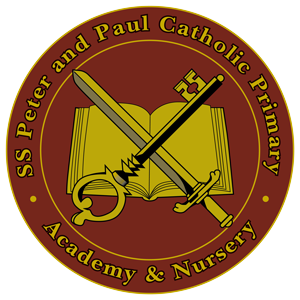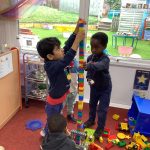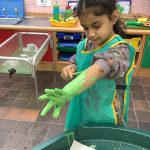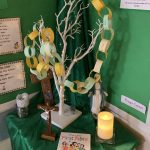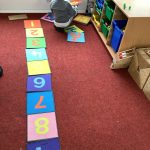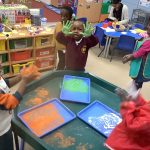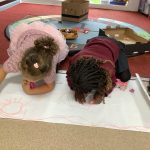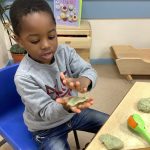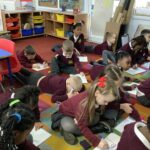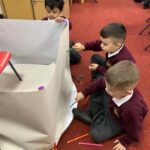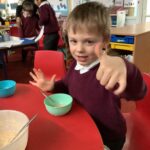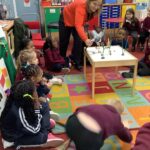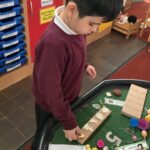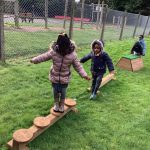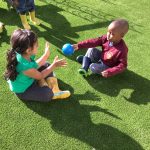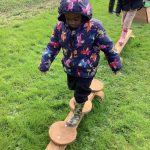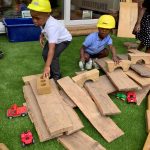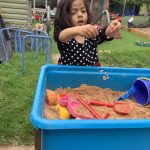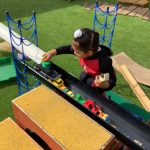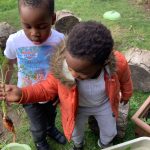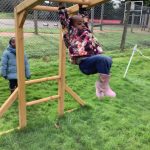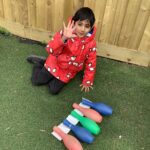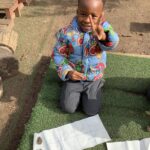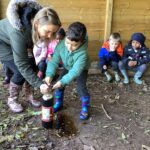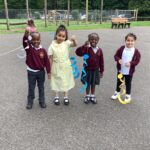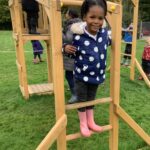The Early Years Foundation Stage (EYFS) Statutory Framework outlines what adults must do to help children learn and develop and to be healthy and safe.
The EYFS includes seven areas of learning and development which is split into three age bands: birth to three years, three to four years (nursery) and four to five years (Reception class.)
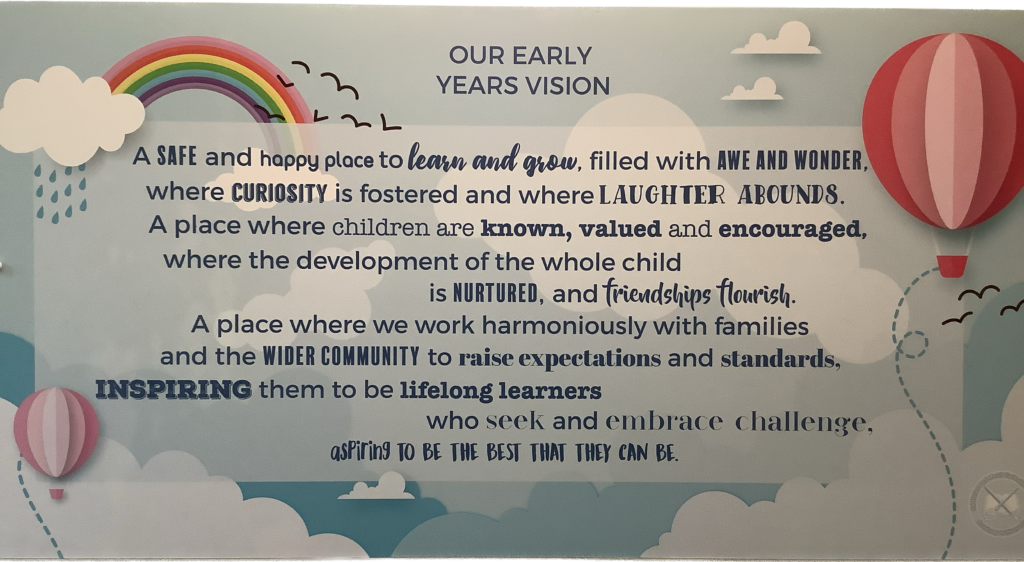
EYFS Curriculum
Our Nursery and Reception Classes follow the Statutory Framework for the Early Years Foundation Stage.
The Early Years prime areas are important because they lay the foundations for children’s success in all other areas of learning and of life:
- Personal, Social and Emotional Development
- Physical Development
- Communication and Language
SS Peter and Paul are passionate that learning should be challenging, creative and fun. To that end, all elements of our broad curriculum (academic, non-academic, religious, extra-curricular and pastoral development) are regularly reviewed to check that themes are well matched to pupil’s interest and development.
- Communication and language
- Physical development
- Personal, social and emotional development
- Literacy
- Mathematics
- Understanding the world
- Expressive arts and design
Please contact Early Years staff or our school office for further details about our excellent provision across these areas of learning.
Indoor Learning
Outdoor Learning
We explore OUTDOORS EVERY DAY! Please make sure your child brings a coat and other appropriate clothing (e.g. hat, gloves, sun hat or cap) as they will spend time outside, even when it’s rainy or very cold. Our EYFS outdoor area is self-contained and has natural and artificial grassed areas with a variety of resources that children can use in many ways, whether they choose to create a train, build a den, make an obstacle course or produce a spider pie in the mud kitchen.
Welly Wednesday and Forest Friday offer a weekly opportunity for children to join in with hands on experiences in the natural environment; our school field is the perfect setting for this. A session will include gathering together in the outdoor classroom and engaging in a group activity; careful listening to the sounds around us or collecting a pair of tapping sticks and tapping rhythms and rhymes are two examples. Blend in or 1, 2, 3 Where Are You involves all children playing a fun game that requires them to be still,and quiet until found; they quickly become very adept at this! There is always an opportunity for child centred exploration when children can follow their own interests or join in with a focus task, such as mini beast hunting. We end the session in the outdoor classroom with our goodbye song.
Also on the school field we have our EYFS trim trail which introduces children to a variety of physical developmental challenges covering balance, lower and upper body strength, core stability, coordination and gross motor skill development. It also gives an opportunity for children to take risks; risk taking is thrilling for children and it enables them to practise physical skills, manage and manipulate their bodies in a variety of spaces and to become resilient to minor bumps, cuts and grazes. Adults work directly with children to support them in their chosen challenge and to support them in managing the risks involved.
